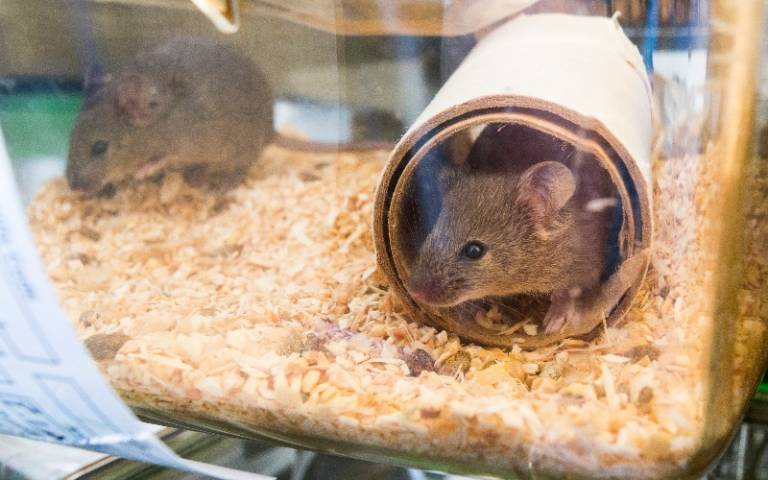Ten universities account for over one third of UK animal research
20 November 2018
UCL is one of 10 UK universities collectively releasing their animal research statistics today in collaboration with Understanding Animal Research.

These statistics relate to animal procedures used to conduct medical, veterinary and scientific research, and are freely available on each university’s website as part of their ongoing commitment to transparency and openness.
The 10 institutions conduct the highest number of animal procedures within UK universities and the figures show they collectively conducted over one third of all UK animal research in 2017. All 10 universities appear in the QS 2018 World University Ranking Top 200.
The 10 universities conducted 1.32 million procedures, 35% of the 3.79 million procedures conducted in Great Britain in 2017. Over 99% of these procedures were carried out on rodents or fish, and in line with national data they were almost evenly split between experimental work and the breeding of genetically modified animals.
The 10 universities are listed below alongside the total number of procedures that they carried out in 2017. Each institution’s name links to its animal research webpage which includes more detailed statistics. This is the third year in a row universities have come together to publicise their collective numbers and examples of their research.
Institution | Number of Procedures |
|---|---|
236,429 | |
225,366 | |
214,570 | |
157,975 | |
121,741 | |
104,863 | |
83,300 | |
79,492 | |
46,743 | |
46,045 | |
TOTAL | 1,316,524 |
All 10 universities are signatories to the Concordat on Openness on Animal Research in the UK, a commitment to be more open about the use of animals in scientific, medical and veterinary research in the UK. Over 120 organisations have signed the concordat including UK universities, charities, research funders and commercial research organisations.All universities are committed to the ‘3Rs’ of replacement, reduction and refinement. This means avoiding or replacing the use of animals where possible; minimising the number of animals used per experiment and optimising the experience of the animals to improve animal welfare. However, as universities expand and conduct more research, the total number of animals used can rise even if fewer animals are used per study.
Wendy Jarrett, Chief Executive of Understanding Animal Research, which developed the Concordat on Openness, said: “The Concordat has fostered a culture of openness at research institutions up and down the country. Institutions now provide an unprecedented level of information about how and why they conduct medical, veterinary and scientific research using animals. Almost two-thirds of the university Concordat signatories provide their animal numbers openly on their websites – accounting for almost 90% of all animal research at UK universities.”
Professor David Lomas, UCL Vice-Provost (Health), said: “Animal research forms a small but vital part of UCL’s biomedical research, helping us to find solutions to the world’s most pressing challenges and improve human health. To ensure we continue to meet the highest possible standards as a world-leading biomedical research university, it’s important to talk openly about how animal research can yield medical advances, and to discuss its challenges and regulations, in order to combat misconceptions and to develop ways to reduce, replace and refine our use of animals where possible.”
Links
- UCL Animal Research website
- Facts & figures about animal research at UCL
- Case studies of animal research
- Concordat on Openness on Animal Research in the UK
- Annual Statistics of Scientific Procedures on Living Animals Great Britain 2017
Image
- Research mice at UCL (Source: David Bishop, UCL)
Source
Media contact
Chris Lane
Tel: +44 (0)20 7679 9222
Email: chris.lane [at] ucl.ac.uk
 Close
Close

